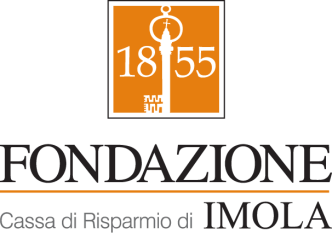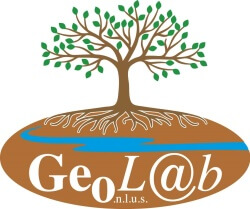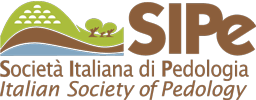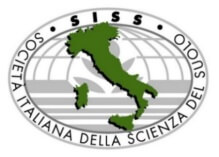Formation of environmental competence of students of higher education
DOI:
https://doi.org/10.6092/issn.2281-4485/21319Keywords:
Environmental competence, sustainable development, professional training, interactive teaching methods, reflective practicesAbstract
In the contemporary context, pressing environmental challenges, including climate change, biodiversity loss, and ecosystem degradation, necessitate the refinement of professional training programs for prospective biology teachers. The present article expounds upon a model of ecological competence formation that integrates theoretical, practical, and reflective components. The objective of the study was to assess the efficacy of this proposed model in the educational process. The study was conducted employing an experimental design, with a sample of 88 students divided into experimental and control groups. The experimental groups exhibited a marked increase in environmental knowledge, values, and skills when compared to the control groups. These findings substantiate the efficacy of the proposed model as an instrumental medium for fostering ecological competence. The model's notable adaptability underscores its capacity for integration into diverse educational contexts. Conclusively, the study underscores the imperative of leveraging the model in the pedagogy of prospective educators to address pressing environmental challenges.
References
AKHMETOVA A., MUKHITDINOV N., YDYRYS A. (2015) Anatomical indicators of the leaf structure of Ferula iliensis, growing in the eastern part of Zailiyskiy Alatau (Big Boguty Mountains). Pakistan Journal of Botany, 47(2): 511-515. https://doi.org/47(2): 511-515,2015
BALKYBEK, Y., TYNYBEKOV, B., KULYMBET, K., KURMANBAY, U., UMIRBAYEVA, Z., NURAKYN, Z., TOKTAR, M. (2025). Study of soil cover of Veronica spuria L. populations in Ile Alatau mountains, Kazakhstan. EQA - International Journal of Environ-mental Quality, 66:99–106.https://doi.org/10.6092/issn.2281-4485/20806
BARTH M., GODEMANN J., RIECKMANN M., & STOLTENBERG U. (2007) Developing key competencies for sustainable development in higher education. International Journal of Sustainability in Higher Education, 8(4):416-430. https://doi.org/10.1108/14676370710823582
BAWDEN R. (2004) Sustainability as inter-systemic capacity building: The role of learning and knowing. International Journal of Innovation and Sustainable Development, 1(4):399-413. https://doi.org/10.1007/0-306-48515-x_3
CHANG C.H., & KIDMAN G. (2023) The rise of generative artificial intelligence (AI) language models - challenges and opportunities for geographical and environmental education. International Research in Geographical and Environmental Education, 32(2):85–89. https://doi.org/10.1080/10382046.2023.2194036
CHAO Y.L. (2024) Different tracks, same greenness? Environmental literacy models integrated with teachers’ environmental education practices for academic vs. technical/vocational high school students. Cogent Education, 11:1. https://doi.org/10.1080/2331186x.2024.2357922
DRITS-ESSER D., GESS-NEWSOME J., & STARK L. A. (2016) Examining the sustainability of teacher learning following a year-long science professional development programme for inservice primary school teachers. Professional Development in Education, 43(3):375–396. https://doi.org/10.1080/19415257.2016.1179664.
EAMES C., IRDSALL S. (2019) Teachers’ perceptions of a co-constructed tool to enhance their pedagogical content knowledge in environmental education. Environmental Education Research. 25(10):1438–1453. https://doi.org/10.1080/13504622.2019.1645445
FIEN J. (2019) Ideology, political education and teacher education: matching paradigms and models. Curriculum and Environmental Education, 141–158. https://doi.org/10.4324/9781315144566-8
GUNCKEL K.L. et al. (2018) Learning progressions in environmental education. Journal of Research in Science Teaching, 55(2):271-289. https://doi.org/10.1002/tea.21454
HAM S.H., CASTILLO L. (1990) Elementary Schools in Rural Honduras. The Journal of Environmental Education, 21(4):27–32. ttps://doi.org/10.1080/00958964.1990.9941935
HARRIS S. E., & GOLD A. U. (2017) Learning molecular behaviour may improve student explanatory models of the greenhouse effect. Environmental Education Research, 24 (5):754–771. ttps://doi.org/10.1080/13504622.2017.1280448
HOUTSONEN L. (2004) Developments in Teacher Training in Finland: Emerging Models of Geography Education. International Research in Geographical and Environmental Education, 13(2):190–196. https://doi.org/10.1080/09669580408668513
ITINSON I., & CHIRKOVA O. (2020) The flipped classroom model as a means of developing competencies in higher education. Education and Self Development, 15(2):115-126. https://doi.org/10.26140/bgz3-2020-0902-0022
JORGENSEN M. (2008) Systematic approaches in environmental education models. Sustainability in Education Journal, 22(5):193-208.
KALLERY M. (2017) Early-Years Teachers’ Professional Upgrading in Science: a Long-Term Programme. Research in Science Education, 48(2):437–464. https://doi.org/10.1007/s11165-016-9575-1
KARTER J.M. (2019) An Ecological Model for Conceptual Competence in Psychiatric Diagnosis. Journal of Humanistic Psychology. https://doi.org/10.1177/0022167819852488
KENT A. (2004) Forum: Emerging Models of Teacher Education. International Research in Geographical and Environmental Education, 13(2):151–152. https://doi.org/10.1080/09669580408668506
KHURASKINA N.V. (2017) Students ecological and legal competence development based on ecological upbringing and education. A New Word in Science: Development Perspectives, 121–123. https://doi.org/10.21661/r-117190
KIND P. (2009) Pedagogical content knowledge in science education. Studies in Science Education, 45(2):165-187. https://doi.org/10.1080/03057260903142285
KIND, P., & CHAN, C. (2019). Integrating pedagogical knowledge in science education. International Journal of Science Education, 41(7):891-907.
KLOCHKO O., FEDORETS V. (2023) Conceptualization of the cultural and artistic model of the ecological com-petence of the mathematics teacher. educological discourse, 41:2. https://doi.org/10.28925/2312-5829.2023.212
KYLER S. (1984) Integrative models in environmental education planning. Environmental Education Review, 7(3) :19-34. https://doi.org/10.1080/00958964.1984.9942672677
LEDERMAN N.G., GESS‐NEWSOME J., & LATZ M.S. (1994). The nature and development of preservice science teachers’ conceptions of subject matter and pedagogy. Journal of Research in Science Teaching, 31(2):129–146. Portico. https://doi.org/10.1002/tea.3660310205
LIU S.C., LIN H., & TSAI C.Y. (2019) Ninth grade students’ mental models of the marine environment and their implications for environmental science education in Taiwan. The Journal of Environmental Education, 51:72–82. https://doi.org/10.1080/00958964.2019.1633990
LIULENKO S., & PODZEREI R. (2022) Formation of ecological competence of the individual as one of the main tasks of sustainable development education. Ecological Sciences, 42(3):226–229. https://doi.org/10.32846/2306-9716/2022.eco.3-42.38
LIULENKO S., & PODZEREI R. (2022) Formation of ecological competence of the individual as one of the main tasks of sustainable development education. Ecological Sciences, 42(3):226–229. https://doi.org/10.32846/2306-9716/2022.eco.3-42.38
LODGE J.M. (2019) Technologies, Teaching, and Learning in Higher Education. Education. https://doi.org/10.1093/obo/9780199756810-0221
LOZANO R., LUKMAN R., LOZANO, F. J. HUISINGH, D., & LAMBRECHTS W. (2013) Declarations for sustainability in higher education: Becoming better leaders through addressing the university system. Journal of Cleaner Production, 48:10-19. https://doi.org/10.1016/j.jclepro.2011.10.006
LUFT J. A., FIRESTONE J. B., WONG S. S., ORTEGA I., ADAMS K., & BANG E. (2011) Beginning secondary science teacher induction: A two‐year mixed methods study. Journal of Research in Science Teaching, 48(10):1199–1224. https://doi.org/10.1002/tea.20444
MARYNA K., OLESYA M., IRYNA K., & IRYNA K. ((2022) Formation of ecological competence of future biology teachers in the process of professional training . Revista Tempos e Espaços Em Educação. 15(34):e17330. https://doi.org/10.20952/revtee.v15i34.17330
MCKAY S., RICHARDS N., & SWANNACK T. (2022) Ecological model development : evaluation of system quality. Engineer Research and Development Center (U.S.). https://doi.org/10.21079/11681/45380
MESQUITA C. (2023) The essence of the formation of research competence in the training of future teachers. Dulaty university bulletin, 4(12):65–71. https://doi.org/10.55956/jiul1651
MOSELEY C., DESJEAN-PERROTTA B., & CRIM C. (2010) Exploring Preservice Teachers’ Mental Models of the Environment. The Inclusion of Environmental Education in Science Teacher Education, 209–223. https://doi.org/10.1007/978-90-481-9222-9_14
NILSSON P. (2014) When Teaching Makes a Difference: Developing science teachers’ pedagogical content knowledge through learning study. International Journal of Science Education. 36(11):1794–1814. https://doi.org/10.1080/09500693.2013.879621
OKASHA, R., & MOHAMED, M. A. (2020) Green School as a 3D-text book for Environmental Education – Precedent analysis. EQA - International Journal of Environmental Quality, 39(1):52–71. https://doi.org/10.6092/issn.2281-4485/10340
ÖZKAN C., ÇEPNI S., MARATKYZY N., VURAL ARSLAN T., DURAK S. (2024) A new perspective on STEM education: The possible contributions of architectural education. Journal of Turkish Science Education, 21(3):599–619. https://doi.org/10.36681/tused.2024.032
PALSHKOVA I.O. (2003) Methodological principles of professional formation of pedagogical activity of future teachers. Educational Dimension, 6:82–83. https://doi.org/10.31812/educdim.5222
PEDERSEN S., BANG J. (2015) Youth Development as Subjectified Subjectivity – a Dialectical-Ecological Model of Analysis. Integrative Psychological and Behavioral Science, 50(3):470–491. https://doi.org/10.1007/s12124-015-9337-z
PLOMP T., PELGRUM W.J., LAW N. (2007) SITES 2006 einternational comparative survey of pedagogical practices and ICT in education. Education and Information Technologies. 12(2):83e92.http://dx.doi.org/10.1007/s10639-007-9029-5.
PLOMP T., PELGRUM W. J., & LAW N. (2007) SITES2006einternational comparative survey of pedagogi. cal practices and ICT in education. Education and Information Technologies, 12(2):83e92. http://dx.doi.org/10.1007/s10639-007-9029-5
PONOMAROVA N. (2018) Theoretical and metholo-gical bases for future it teachers training for professionally-orien-ted work with pupils. Continuing Professional Education: Theory and Practice, 1(2):47–51. https://doi.org/10.28925/1609-8595.2018(1-2)4751
POPOVA E. (2024) Innovative pedagogical technologies in higher education. Journal of Modern Education, 30(1): 34-48. https://doi.org/10.32782/2663-6085/2024/73.36
RIDEI N., TOLOCHKO S. (2018) Development of teacher ecological competence in the system of postgraduate pedagogical education for sustainable development. Humanities Science Current Issues, 2(21):144–148. https://doi.org/10.24919/2308-4863.2/21.167324
ROBERT K. W., PARRIS T. M., LEISEROWITZ A.A. (2005). What is Sustainable Development? Goals, Indicators, Values, and Practice. Environment: Science and Policy for Sustainable Development, 47(3):8–21. https://doi.org/10.1080/00139157.2005.10524444
SABELNIKOVA E.V., & KHMELEVA N.L. (2015) Higher Education Outcomes at the National Level on the Example of the Project Collegiate Learning Assessment. Psychological Science and Education, 20(2):16–23. https://doi.org/10.17759/pse.2015200202
SEILKHAN A., ABDRASSULOVA Z., ERKAEBAEVA M., SOLTAN R., MAKHAMBETOV M., YDYRYS A. (2022) Problems of distance education in Kazakhstan during the COVID-19 pandemic. World Journal on Educational Technology: Current Issues. 14(2):380–389. https://doi.org/10.18844/wjet.v14i2.6913
SOTSKA H., & KUZMENKO H. (2019) Methodological aspects for the preparation of future teachers of fine arts. ScienceRise: Pedagogical Education, 29:17–21. https://doi.org/10.15587/2519-4984.2019.161529
STAGL S. (2017) Ecological Economics as a New Integrative Approach. The WTO, Agriculture and Sustainable Development, 311–316. https://doi.org/10.4324/9781351282123-18
STIBBARDS A., PUK T. (2011) The Efficacy of Ecological Macro-Models in Preservice Teacher Education: Transforming States of Mind. Applied Environmental Education & Communication, 10:20–30 https://doi.org/10.1080/1533015x.2011.549796
VDOVENKO T. (2022) Formation of ecological competence among university students. Scientific Bulletin of the Izmail State University of Humanities. Pedagogical Science, 60:9–14.https://doi.org/10.31909/26168812.2022-(60)-1
WAHBEH N., & ABD-EL-KHALICK F. (2013) Revisiting the Translation of Nature of Science Understandings into Instructional Practice: Teachers’ nature of science pedagogical content knowledge. International Journal of Science Education, 36(3):425–466. https://doi.org/10.1080/09500693.2013.786852
XIAO C., & MCCRIGHT A. M. (2007) Environmental Concern and Sociodemographic Variables: A Study of Statistical Models. The Journal of Environmental Education. 38(2):3–14. https://doi.org/10.3200/joee.38.1.3-14
ZAMELIUK M. (2020) Ecological trail as a component of the development of ecological competence of preschool children. Education and Development of Gifted Personality, 3:38–42. https://doi.org/10.32405/2309-3935-2020-3(78)-38-42
ZHANGUZHINOVA M. (2017) Formation of the professional competence of students future teachers of vocational training in the system of higher education on Kazakhstan. society. integration. Education. Proceedings of the International Scientific Conference, 1:442. https://doi.org/10.17770/sie2017vol1.2400
Downloads
Published
How to Cite
Issue
Section
License
Copyright (c) 2025 Nazerke Maratkyzy, Anargul Shariphanova, Sholpan Abilova, Aiman Karabalayeva, Nurgul Sihanova, Nurila Togyzbayeva, Zhadyra Ashirova, Arailym Amantayeva, Alibek Ydyrys

This work is licensed under a Creative Commons Attribution 4.0 International License.









